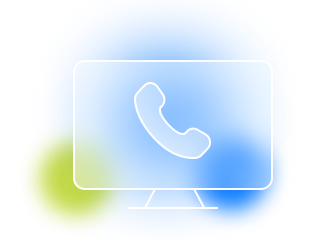As interactive kiosks become more advanced and prevalent across industries, effective device management is crucial to ensure optimal performance and enhance the user experience. Managing these sophisticated informational kiosks requires more than a basic mobile device management (MDM) solution.
By 2025, it’s projected that 35% of new digital kiosks will feature touchless interfaces, such as voice commands, gesture control, and facial recognition. Businesses need an advanced device management platform that offers granular control, content delivery optimization, and actionable analytics to maximize the strategic value of kiosk deployments.
In this article, we explore the key considerations and emerging trends that should guide the selection of the right device management solution for informational kiosks. With a platform that enhances user engagement and streamlines operational efficiency, kiosks become a competitive advantage for hospitality, retail, and other customer-facing industries.
Essential Features to Look for in Today’s MDM Market
While MDM focuses on managing and securing mobile devices, device management systems (DMS) cover a broader range of device management capabilities for various endpoints. This includes mobile, cloud, hybrid, and Internet of Things (IoT) devices.

MDMs can lock devices remotely, wipe them clean, install software updates, and enforce security policies. However, to support informational kiosks and linked devices, a DMS provides a centralized platform for managing and securing all endpoints.
A DMS can manage user accounts, deploy software, track device usage, and monitor system health. The following DMS features support modern interactive kiosks:
1. Centralized Management
A robust DMS should offer a centralized platform to manage all aspects of the kiosk deployment. This includes the ability to configure device settings, deploy content and applications, and monitor performance metrics across the entire kiosk network.
With a centralized management console, IT teams can make changes to multiple kiosks simultaneously. This streamlines operations and reduces the time and resources required to maintain the system. What’s more, the centralized approach enables better visibility and control over the kiosk ecosystem for proactive issue identification and resolution.
2. Security Enforcement
As kiosks become increasingly connected and feature-rich, the need for robust security measures becomes paramount. An advanced DMS should provide comprehensive security features. For instance, the ability to enforce access controls, implement secure boot processes, and apply software updates remotely. It also ensures informational kiosks remain compliant with industry standards.
3. Remote Troubleshooting
Kiosks are often deployed as public information terminals, which can make on-site troubleshooting and maintenance a challenge. An effective DMS should offer remote troubleshooting capabilities so IT teams can diagnose and resolve issues without on-site intervention. This includes the ability to remotely access the kiosk’s operating system, view system logs, and perform diagnostic tests.
Through remote troubleshooting, organizations can reduce downtime and minimize service disruptions. They can also allocate resources more efficiently.
4. Device Tracking
Comprehensive device tracking is essential for managing a fleet of self-help kiosks. The DMS should provide real-time visibility into the location, status, and usage patterns of each device so IT teams can monitor the health and performance of the entire network. The DMS should also offer reporting and analytics capabilities to help organizations make data-driven decisions about kiosk deployments.
5. Operating System Updates
As technology continues to evolve, it's crucial for informational kiosks to keep pace with the latest software and security updates. An advanced DMS should simplify system updates and patches so the kiosks remain secure and functional. This includes the ability to schedule updates, test them in a controlled environment, and roll them out across the entire network. That is, with minimal disruption to end-users.
Beyond the Basics: More Advanced Features of an MDM
Mobile device solutions in the hotel and hospitality industry enable staff to provide customer service from anywhere, rather than being confined to the front desk. Hospitality staff can now check on customer well-being and log customer requests instantly. They can also update work status and room preparation in real time.

MDM and DMS providers that offer advanced features can help hospitality institutions improve customer service, boost workforce productivity, and enhance profitability. These features include:
1. Content Management
A sophisticated device management solution should provide a centralized content management system so you can easily upload, schedule, and distribute multimedia content across your entire kiosk network. This ensures a consistent, up-to-date experience for your customers while minimizing the effort required to manage content updates.
2. User Analytics
Robust analytics capabilities help you understand how customers interact with your informational kiosks. Look for a platform that can track user engagement metrics such as session duration, popular content, and user flow.
3. Zero-Touch Enrollment
Streamlining the deployment process is key to maximizing operational efficiency. An advanced device management solution should offer zero-touch enrollment so you can preconfigure devices and deploy them to their designated locations without manual intervention.
4. Complete Guest Privacy
With the rise of touchless interfaces and an increased focus on data privacy, a DMS must prioritize guest privacy and security. Seek a solution that offers advanced data encryption, access controls, and compliance features to protect sensitive customer information.
For instance, you can allow guests to use their favorite apps and open-marketing streaming services in-room with their own accounts. At check-out, all usage history and personal data is wiped out, leaving the device secure and clean for the next guest.
5. Digital Signage Integration
For hospitality environments, the ability to seamlessly integrate self-service kiosks with digital signage can enhance the overall customer experience. Look for a device management platform that provides centralized control over both your kiosks and digital displays. This enables you to deliver a cohesive and engaging visual experience throughout your facilities. For instance, guests can see signage advertising a special evening event, which they can then book instantly on a kiosk or their mobile app.
Deploying Informational Kiosks
After you select the most suitable MDM solution, you’ll need to get your informational kiosks up and running. Consider the following steps:
- Assess your existing infrastructure, then identify integration points with the new MDM platform.
- Collaborate with the MDM vendor to configure the solution based on your unique needs.
- Deploy the MDM client software on each kiosk device and ensure successful enrollment.
- Customize the interactive kiosk interface and display content to deliver a seamless user experience.
- Integrate the MDM platform with your CMS, CRM, or other relevant business systems.
- Test the kiosks thoroughly to verify functionality, content delivery, and data synchronization.
- Develop a comprehensive training plan for your IT team and frontline staff.
- Establish monitoring and reporting mechanisms to track both kiosk performance and user engagement.
- Implement a maintenance and troubleshooting protocol to address any issues promptly.
- Regularly review and optimize the kiosk deployment based on user feedback and data insights.
Transforming Informational Kiosks Into a Competitive Advantage
Informational kiosks have become essential fixtures in modern hospitality settings. They empower guests with intuitive self-service capabilities and enhance the overall customer experience. As these in-room and shared-space interactive touchpoints continue to evolve, businesses require a robust and versatile device management platform to unlock their full strategic potential.
Radix is a leading provider of innovative endpoint management solutions. It offers the ideal platform to transform informational kiosks into a true competitive advantage. With Radix’s comprehensive device management platform, hospitality organizations can centrally manage and secure their entire kiosk network. As a result, you get seamless operations, optimized content delivery, and actionable data-driven insights.
Radix’s advanced features, such as zero-touch enrollment, remote troubleshooting, and integrated digital signage, streamline deployment and maintenance while safeguarding guest privacy and data security. By partnering with us, you can elevate your kiosk experiences, boost customer satisfaction, and unlock new revenue streams—all while reducing the operational burden on your IT teams.
Learn more about how we can help your hospitality business leverage informational kiosks to drive growth and innovation. Book your free demo today.




